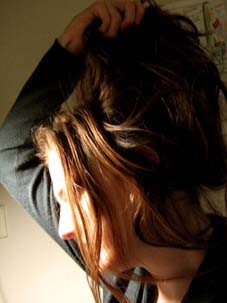Check out this interview with Seema Dhundia, commander of the UN's first all-female peacekeeping force. The force consists in 105 police officers from India that are currently stationed in Liberia.
Now that your unit has been in the field for a few months, how would you say the presence of a female UN peacekeeping contingent is enabling Liberia to get on the path to rebuilding?
I think that for the first time the Liberian people are seeing a fully trained contingent of female officers out on streets. Their own women are getting inspired and motivated and now they are coming forward. Seeing my girls performing their duties is inspiring young Liberian women to join the regular forces -- in this way we are sort of role models for the young Liberian ladies. They are seeing our girls and are now coming forward and joining the regular forces. Their numbers have considerably increased after our arrival here
The people are watching us here in Liberia. They are seeing the all-female contingent -- which has come all the way from India for the peacekeeping mission -- and they are getting inspired. They might start their own female force.
Have you faced any specific challenges being an all-women's unit?
There is no specific challenge as such. The situation is still volatile –the undercurrents of the conflict are still there, though the politics seem to be calm and quiet. Sometimes, though, it does get out of hand. But since the troops are prepared and they are professionally competent, we are able to cope with the pressures of any kind of situation.
Have you encountered any situations where being an all female unit has enabled you to accomplish things where a mixed gender unit would not have been able to?
No. Whether it's a mixed unit or a female unit or a male unit the point is that everybody has to be professionally competent. Even if it is a fully formed female contingent, even in that case, the female officers are supposed to be professionally competent and trained enough to tackle any kind of situation in that manner. Whether it is a mixed unit or a female unit or a male unit the point is the officers are to be properly sensitized. Irrespective of what you call it, they are to be properly trained and they have to be aware of what is going in their deployment area.
And would you say that Ellen Johnson Sirleaf's presidency has it had any impact on operating as an all-female unit. Has it made things easier or more difficult?
I can't be very specific about it since she is the President. But she does provide a platform for all of us to perform. As far as our duties are concerned we are preparing the same kind of duties that the other peacekeepers are doing so there is no discrimination as such.
What are the primary goals -- if you wouldn't mind giving some background for our readers -- the primary goals of the UN peacekeeping mission in Liberia and how do those filter down into your day to day duties in as a policing unit?
The primary goals of the UN mission here are to establish peace and implement all kinds of humanitarian assistance programs. They call this a post-conflict scenario. The infrastructure of the country had to be repaired from scratch. The primary goal is to establish normalcy -- establish peace and to ensure that state infrastructure is functioning. I think that this is the main goal of the UN mission here in Liberia.
As far as our contribution is concerned, we are here to advise and mentor the Liberian national police and we are provide backup support to the police in their day to day work. We are the only people who carry weapons with us, so we provide a security cover -- a backup to the Liberian national police in their day to day job. We also are providing a great deal of on-the-spot training to the Liberian national police officers, advising them on how to react to a particular situation.
Why did you become a UN peacekeeper?
I was commandant of an all-female contingent in India. Coming all the way from India to a place called Liberia and using my expertise and skills in performing my day to day duties was a good challenge. And obviously, if there is a challenge for a police officer it has to be taken in a positive way. It definitely leads to our own development. We are gaining excellent experience from being here. We have learned many new things, including the function of the UN. And it has provided a good platform for all of us. I think that is why all of us volunteered for this mission. Based on your experience thus far, how long do you think the UN will have a presence in Liberia?
I am not the right person or the right authority to say on this matter but I think it will take some time to bring in a little bit of normalcy. It will take some time -- how much time is difficult to judge, but obviously it will take a few years.
Via feministing.com (generally a very recommendable feminist reader!)
What's up, Europe? Gender, media and European integration. The story of a a young Dane exploring the continent.
Subscribe to:
Post Comments (Atom)


No comments:
Post a Comment